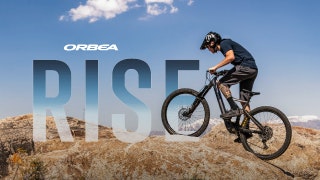Featured Brands
Recommended Products
Get free shipping, on most items, with your $50 purchase today! Same day shipping on most orders if placed by 3pm PST.
PLEASE NOTE:
This offer is only available to physical shipping addresses in the 48 continental United States (no PO Boxes), and some exclusions apply.
Oversize Charges
Some large and/or heavy items are subject to additional oversize charges that are separate from standard shipping costs.
Bike Build Process
All bikes are built, tested, tuned, and ready to ride upon shipment. The bike build process typically takes 2-3 days to complete depending on the bike model and the complexity of the build.
Stock Status
Orders for in-stock items placed by 3PM PST usually ship on the same day. Orders that include special-order or backordered items may be subject to shipping delays depending on product availability. Refer to estimated delivery times in cart when selecting shipping options.

Our Gear Advisors are Ready to Help.
Direct mount or bolt on? Round or oval? Road or mountain? Narrow-wide, wave, or traditional tooth pattern? When it comes to picking chainrings for your bike, there are a lot of factors to consider — and a lot of choices to peruse. At JensonUSA.com we have over 150 options alone.
To help navigate this sometimes confusing landscape it helps to have a basic understanding of this critical component’s function. Chainrings, like the cogs of your cassette, are machined wheels of metal with evenly-spaced teeth around the outer edge to engage your chain.
Most modern road bikes are equipped with two chainrings, though triple chainring set-ups are also still in use. On today’s mountain bikes the norm is single chainring set-ups, though you still encounter 2x set-ups. No matter the number of chainrings, the smaller ring(s) are located inboard of the larger chainrings.
Chainrings also vary in shape and size. Round is the standard, but there are also lots of oval chainrings options, the pitch being an increase in overall pedaling efficiency by helping minimize the deadspot in you pedal stroke. The shape of the teeth also varies, with 1x specific chainrings usually utilizes either a narrow-wide or wave-tooth profile to increase chain retention, lessening the chance of dropping your chain.
Chainring size, which is indicated by the chainring’s number of teeth, most commonly range from 26t to 53t, though you find chainrings as small as 20t and as large as 60t, though they are rare. The higher the number of teeth (and thus larger), your chainring has the harder it will be to pedal, but also the faster it will help you and your bike roll down the road or trail. And of course the fewer teeth a chainring has, the easier it is to pedal, but the less speed it will produce.
Another important consideration is mechanism of chainring attachment, either bolt-on or direct mount. If looking for bolt-on you’ll also need to know the bolt circle diameter (or BCD) and the total number of bolt holes. If you have any question, feel free to call one of JensonUSA’s Gear Advisors at 951-234-7554. They can help you make the right decision your specific cycling needs.




